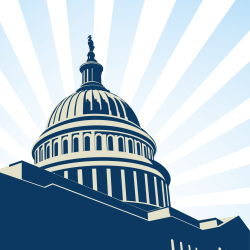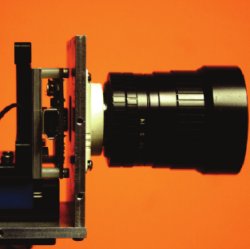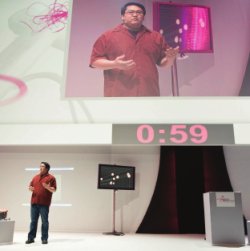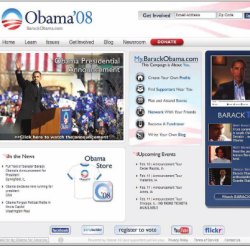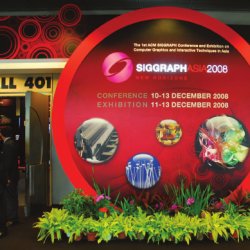A Difficult, Unforgettable Idea
News
On the 40th anniversary of Douglas C. Engelbart's "The Mother of All Demos," computer scientists discuss the event's influence — and imagine what could have been.
Digital rights management (DRM) has emerged as a widespread tool to combat piracy. So far, however, DRM systems have proved highly inconvenient to consumers who wish to view or listen to content on multiple devices, including computers, media servers, set-top boxes, portable video and audio devices, even phones. They have also proved mostly ineffective in thwarting thieves.
ACM members have a professional duty to ensure that the public comprehends and benefits from advances in computing.
Researchers working in computational photography are using computer vision, computer graphics, and applied optics to bring a vast array of new capabilities to digital cameras.
Researchers are recognizing the potential of position sensors to help them overcome the limitations of traditional user interfaces.
Barack Obama's presidential campaign utilized the Internet and information technology unlike any previous political campaign. How politicians and the public interact will never be the same.
ACM's premier computer graphics conference hosts its first-ever graphics event in Asia, with a more global focus.
The Long Slow Road to a $1 Million Millennium Prize
In 2006, the journal Science named the solution to the century-old Poincaré Conjecture as its "breakthrough of the year." Three years later, the Clay Mathematics Institute, which had pledged to award $1 million to the person who solves this or any of six others of its Millennium Prize Problems, has yet to name a winner. The delay sheds light on the onerous process of vetting solutions to mathematics' toughest problems.
Climate researchers have no shortage of scientific issues on which to expend computer power. The biggest problem is choosing which one to tackle first.
Two virtual astronomical telescopes promise to transform the way people view and study the cosmos.
Future generations of smartphones will be context aware, tracking your behavior, providing information about the immediate environment, and anticipating your intentions.
Programmer Jean Bartik is inducted into the Computer History Museum's Hall of Fellows.
I would be hard-pressed to recall in my four decades as an ACM member a time as eventful and exceptional as recorded by ACM in FY08.
The sometimes contentious development of 64-bit systems shows how technology decisions can have unexpected, enduring consequences.
The Grace Hopper Celebration featured technical talks, workshops, networking events, and lively discussions about increasing the number of women in computer science.
Researchers of molecular computing and communication are focusing on the type of breakthroughs needed to make the vision of ultrasmall, biocompatible computers a reality.
Mobile phones are bridging the digital divide and transforming many economic, social, and medical realities, particularly in developing nations.
In combination with finger and hand gestures, multitouch input is enabling users to manipulate and display information in innovative and unprecedented ways.
ACM Publications: Access and Sustainability
The dissemination of research results and other technical information is one of the primary ways in which ACM carries out its mission as an educational and scientific society. As such, ACM seeks to make its publications accessible to as wide an audience as possible. However, in doing so ACM also has a responsibility to its […]
Computational complexity and intractability may help scientists better understand how humans process information and make decisions.
Analyzing Online Social Networks
Social network analysis explains why some sites succeed and others fail, how physical and online social networks differ and are alike, and attempts to predict how they will evolve.
The U.S. patent system is overdue for reform, but what needs fixing, and how, is a matter of some dispute.
User-Centric Services Provisioning in Wireless Environments
To date, services provided for mobile users are still hard to build. Two main challenges need to be considered. The first challenge is about the personalized access to services. The second challenge is about handling limited resources of mobile devices.
Shape the Future of Computing
ACM encourages its members to take a direct hand in shaping the future of the association. There are more ways than ever to get involved.
Get InvolvedCommunications of the ACM (CACM) is now a fully Open Access publication.
By opening CACM to the world, we hope to increase engagement among the broader computer science community and encourage non-members to discover the rich resources ACM has to offer.
Learn More
